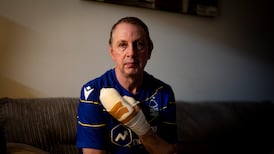THE SPANISH Supreme Court yesterday cleared the outgoing prime minister, Mr Felipe Gonzalez, of any involvement in state sponsored death squads that allegedly targeted Basque separatists in the 1980s.
The ruling resolves one of the worst scandals to hit the outgoing Socialist government. The court said it had found no evidence that would justify bringing Mr Gonzalez to trial.
The court also cleared two other senior officials of the Socialist Party the former defence minister, Mr Narcis Serra, and Mr Jose Maria Benegas, a deputy from the Basque region.
The Supreme Court's decision leaves the former interior minister, Mr Jose Barrionuevo, as the only close associate of Mr Gonzalez to be indicted in the affair.
During the run up to the elections on March 3rd, the conservative Partido Popular hammered away at the scandal, a factor that may have contributed to ending more than 13 years of Socialist rule under Mr Gonzalez.
The Supreme Court ruling says the only accusations against Mr Gonzalez came from a former Socialist Party official in the Basque region, Mr Ricardo Garcia Damborenea, but were not backed up by any evidence, and a former senior interior ministry official, Mr Julian Sancristobal, who made a vague reference" to Mr Gonzalez's involvement.
"There are no facts or evidence that go beyond mere suspicions," Judge Eduardo Moner wrote in his ruling.
The death squads known as the Anti terrorist Liberation Groups (GAL), are held to have been responsible for killing at least 22 alleged Basque separatists between 1983 and 1987, mainly in southern France. Since investigations into the death squads began in 1988, 15 people have been implicated.
Mr Gonzalez has always denied involvement and was never formally charged in the case.
He was directly implicated for the first time last July when Judge Baltasar Garzon suggested he had organised the death squads and had covered up their criminal activities. His claim hinged for the most part on the accusations of Mr Damborena, who alleged that Gonzalez was aware of the death squads' creation.
In a separate development a lower court judge said the former director of the Civil Guard should be tried in connection with the first of the death squad killings, which occurred in December 1983.
Meanwhile, the Speaker of the Spanish parliament, Mr Federico Trillo, announced yesterday Mr Jose Maria Aznar's government will be formed on Monday.
Mr Aznar will be sworn in probably on Sunday" by King Juan Carlos as Spain's first conservative prime minister in nearly 20 years, ending two months of political limbo and horse trading prompted by the inconclusive general election.
He can expect support in parliament's investiture vote on Saturday from his Partido Popular (PP), plus 16 Catalan nationalist deputies and four from the Canary Islands.
Yesterday the five deputies of the Basque nationalist PNV party said they too would back Mr Aznar as prime minister, PP officials said after overnight talks. Mr Aznar is, therefore, assured of 181 votes in the 350 seat Congress of Deputies.








